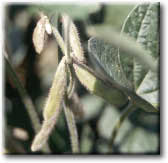| Renewable Fuels Canadian Journal |
|
|||||||||||
| Ethanol Vehicle Featured at Oktoberfest | ||||||||||||
| The Oktoberfest festivities celebrated in Kitchener-Waterloo, Ontario attract thousands of people each year. The Oktoberfest Parade, held along King Street on Thanksgiving Monday, this year featured the University of Waterloo Alternative Fuels Team's (UWAFT) award-winning Chevrolet Silverado pick-up truck. The team took top prizes for the lowest emissions and the best design presentation in the 1999 Ethanol Vehicle Ch  allenge. This prestigious competition challenges engineering students from 14 of the top North American Universities and Colleges to optimize a Silverado to run on E85 (a blend of 85% ethanol with gasoline). The University of Waterloo has been the only Canadian participant in the event, to date. allenge. This prestigious competition challenges engineering students from 14 of the top North American Universities and Colleges to optimize a Silverado to run on E85 (a blend of 85% ethanol with gasoline). The University of Waterloo has been the only Canadian participant in the event, to date.The vehicle is currently being prepared to compete in the Millennium Ethanol Vehicle Challenge, which will be held in Canada, in May 2000. "The team members are very excited about this opportunity to showcase their innovation on their 'home turf'", says Dave Mather, Sponsorship Manager of UWAFT. Spectators along King Street queried whether it was actually possible to operate a truck on ethanol/alcohol, and congratulated this Canadian team for their success in past competitions. UWAFT, and other participants in the Ethanol Vehicle Challenge, have developed and refined technologies to demonstrate that with a few modifications, it is possible for E85-dedicated vehicles to outperform standard models in performance, driveability, and emissions reductions. The Ethanol Vehicle Challenge is sponsored by General Motors, Natural Resources Canada, and the U.S. Department of Energy. Other organizations, such as the Canadian Renewable Fuels Association and its members sponsor Challenge events or one of the teams. For more information, contact the CRFA at (519) 767-0431 or the University of Waterloo Alternative Fuels Team at (519) 888-4567 Ext. 3885. |
||||||||||||
| Biodiesel Research Demonstrates Emissions Reductions and Improved Lubricity |
||||||||||||
| By Matt McLean, Ontario Soybean Growers' Marketing Board In an effort to stimulate the commercialization and use of biodiesel fuel in Canada, the Ontario Soybean Growers' Marketing Board (OSGMB) continues to support research into the benefits of this renewable fuel. Although it is unlikely that biodiesel will ever completely replace fossil fuels, research is showing that it does have a role to play in reducing harmful exhaust emissions and enhancing diesel engine performance. Two recent studies supported by the OSGMB illustrate these benefits. The first study, carried out at Environment Canada's Environmental Technology Centre Ottawa, evaluated tailpipe emissions of various blends of biodiesel and conventional fuel from a light-duty diesel pickup truck. |
Results showed that hydrocarbon emissions were lower for all the biodiesel blends compared to the emissions from the conventional baseline fuel. Similarly, results also revealed a 40% reduction in fine particulate emissions (particles less than 2.5 microns in diameter) with the use of biodiesel-blended fuel compared to the conventional fuel. This is an important finding since these ultra fine particles can be inhaled deeply into the lungs and are considered a significant health concern. |
The second study, conducted by Advanced Engine Technologies of Nepean Ontario, evaluated the fuel lubricity properties of low-level biodiesel blends. Fuel lubricity is an important factor in diesel engines in that it decreases engine wear and improves fuel economy. In recent years, through the process of lowering sulfur levels, the lubricity properties of many diesel fuels have been reduced. To counteract this, many fuel manufacturers put additives into their diesel fuels to improve lubricity. Results of this study show that adding up to 4% biodiesel into the baseline fuel results in a 33% increase in fuel lubricity. The majority of this increase in lubricity actually occurs with levels of less than 1% biodiesel. Therefore, biodiesel shows great promise as a diesel fuel lubricity additive that is both effective and renewable. The OSGMB's funding for these projects was provided in part by Agriculture and Agri-Food Canada through the Agricultural Adaptation Council's CanAdapt Program. |
||||||||||
 |
||||||||||||
|
|
|
|||||||||||
![]()